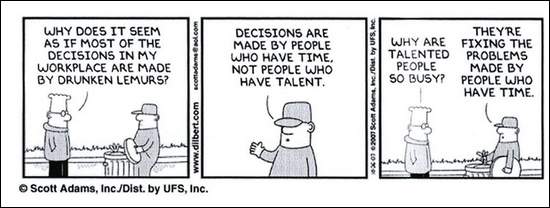
Photo source: http://www.imigion.com
Pepsi CEO Indra Nooyi’s famous quote at the Aspen Ideas Festival has caused a lot of stir. Mostly among feminists and journalists. Nooyi says that women pretend that they have it all but it’s not the truth. “Every day,” she says, “a woman needs to make a choice between whether she wants to be a wife or a mother at least once.” On the other hand, Kim Kardashian who many term as the poster girl of first world frivolity “begs to differ.” Kardashian says that her mother taught her that women can have it all if they prioritise right. Feminists and social mercenaries were quick to jump and dismiss Kardashian’s point of view. After all, “how could a world famous celebrity with a legion of staff to take care of childcare, career, and husband’s untameable ego know about the truth in the ground?”
As much as one may hate to admit it, Kardashian does have a point. A deep one too!
The world’s cruel, yes
Women undergo the biological event of child-birth and subsequent motherhood which causes them to take a break from their corporate careers. Women start out with peers from business schools in a corporate career, the top percentile get ahead of the race while the others are still at par with their male peers. There is, of course, the 25-40 age window where most women take a break from their corporate careers mostly because of motherhood obligations. Irrespective of what stage a woman is with her corporate career, the feminist lobby argues that she comes in with the disadvantage of starting behind her peers and loses the motivation to carry on. Even if the woman gathers enough motivation to join another corporate job, she finds out that her male peers have moved ahead and she has to catch up.
At work, the woman is worried about her child/children and the health of the family. She faces prejudice from her bosses because of the perceptions that a woman cannot stay back for late hours, and there is always the risk of another career break with a new pregnancy. Many corporate women complain that they were unfairly overlooked by their bosses for a well-deserved promotion because of gender bias. As a result of all that, a woman’s CV looks less prolific than a man’s. There are fewer women in leadership positions in the corporate world than men. All of the above is true. And all relevant. But is that how we really measure success?
Corporate success does not equate absolute success
All the issues listed above are true for the modern corporate woman. The truth is, corporate success and success in absolute terms are two different things. Would you call the “douchebag CTO of the global service firm who cannot tell a scone from a macaroon and talks like a jerk” a successful person? Does the word “CTO” negate the words “douchebag” and “jerk”? I guess not! In absolute terms, this guy has been unsuccessful in becoming an all-rounder. He is highly unsuccessful. In fact, in absolute terms chances are, more people will end up calling him a “loser with a capital L.”
Measure success on absolute value, not bell-curve placement
Why does no one talk about absolute value? Giving birth and nurturing a child in absolute terms is progressively more valuable than growing older and less valuable as a social and economic entity. After an individual is past her/his prime, the capacity of the individual to generate value diminishes. True, the individual may continue to earn more based on his experience. But s/he will progressively have lesser and lesser energy for family and friends, and lesser capability to remain “an interesting person.” Not to mention, beauty and pleasing looks will fade away too. The absolute value of the individual goes down. The only way to continue being valuable is to nurture a progressively valuable entity. A child is a great bet!
One’s placement in your organisation’s bell curve may not be in the lead area, but that’s really not a measure of somebody’s worth, right?
Men can’t have it all either
Once someone’s measurement standards are truly elevated to absolute terms, it is possible to acknowledge that men can’t have it all either. For a man, not succeeding is not an option. A man is born with the expectations to lead, to be faster, better, swifter than the rest.
While a man is busy attending to the world’s expectations, he fails to invest in overall well-being. He stops developing a personality, stops doing things that interested him once, and invests as much time as he can to vegetate and regain lost mind space. Being taught all life to have things under absolute and unequivocal control, to be on top is of the game now and always, men cannot afford to just float if they have to lead “a worthy life.”
Read about hikikomori in Japan. It’s the growing trend among men in Japan unable to cope with the society’s expectations around them to ultimately withdraw to a vegetative state. It’s a miserable life to lead. It’s not just a phenomenon in Japan. Men all around the world face the same burden and will continue to. We don’t need WHO statistics to tell us that significantly more men die of stress-related disease than women. Simply put, men have it tough too!
Kardashian may just be right
Prioritisation is an unfailing answer to the question, “What is success and how do you measure it?” I hope there will come a time when the world becomes more rational and measures people in absolute terms than their economic worth. Until then, there is one thing someone can always do. Just find out what one enjoys doing, prioritise that over everything else, and invest in overall welfare. As my 20 year old cousin puts it, “YOLO.” (If you didn’t get that, it’s possible that you’re past your prime)
